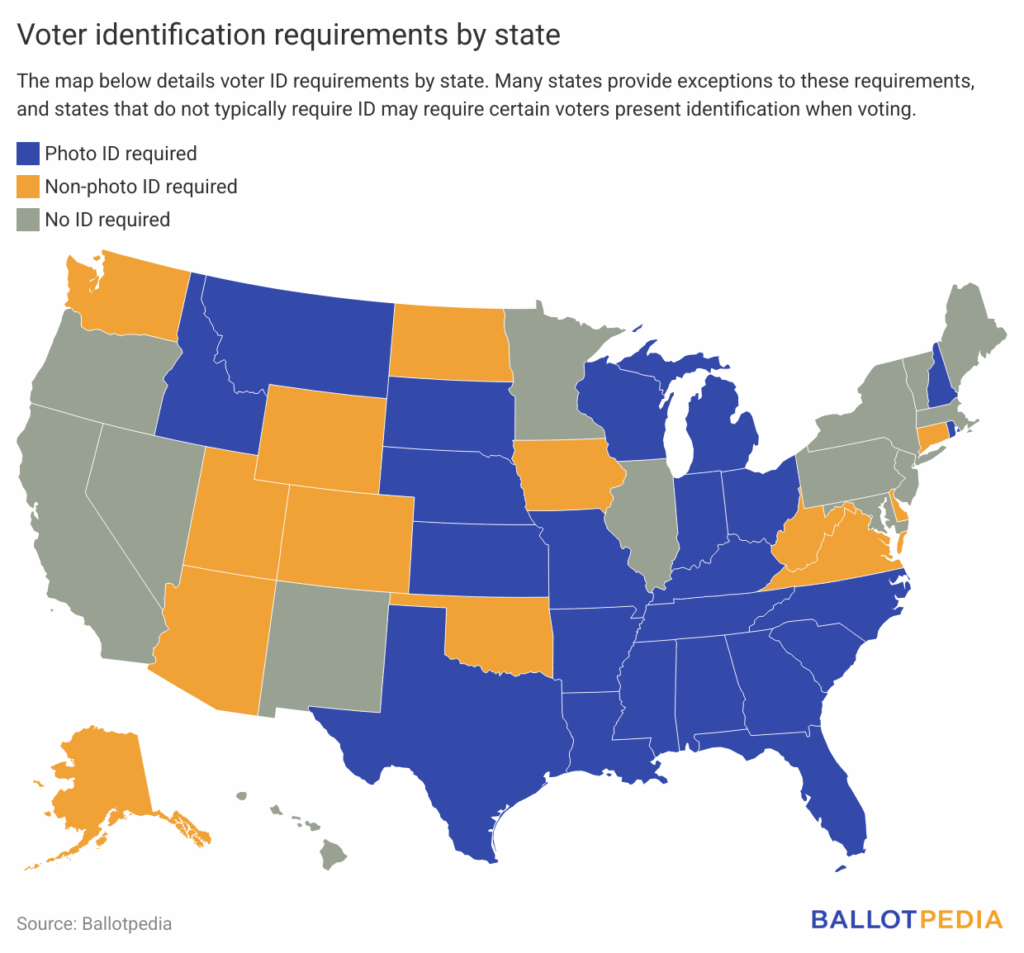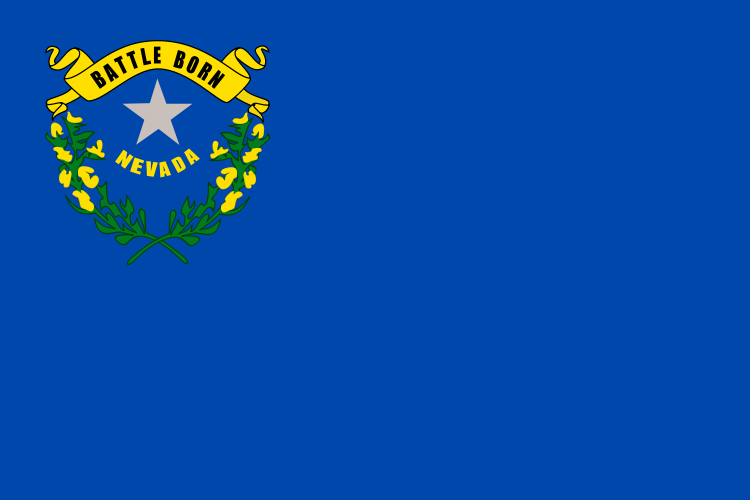On June 12, Gov. Joe Lombardo (R) vetoed two election bills that passed the legislature in the final days of the 2025 session, including new voter ID and drop box requirements, and changes to rules for unaffiliated voters in primary elections.
Voter ID
AB 499 would have required in-person voters to present a valid photo ID and would have asked voters to provide the last four digits of a qualifying ID when returning an absentee ballot. The bill also included an expansion of drop box availability which Lombardo vetoed as AB 306 in May. Click here to read a full summary of the bill.
During the 2025 session, Lombardo supported legislation increasing voter ID requirements. On the last day of session, legislators agreed to amendments that combined the voter ID changes with drop box provisions sought by Democrats. The final version of the bill passed the Nevada Senate 16-5, with all eight Republicans in the chamber voting for the bill.
In his veto message Lombardo wrote, “I wholeheartedly support Voter ID and am appreciative of the effort to codify it into statute.” But, he continued, “Because AB 499 would apply voter ID requirements unequally between in-person and mail ballot voters and fails to sufficiently guarantee ballot security, I cannot support it.”
Speaker of the Assembly Steve Yeager (D) said, “Lombardo was for AB499 before he was against it, encouraging all legislative Republicans to support it, which they did.” Liz Luna, the incoming executive director for the Nevada Assembly Democratic Caucus, said, “By vetoing this bill, the Governor has not only walked away from bipartisan compromise but also from the will of the people he claims to represent, thus elevating politics over people.”
Voters in Nevada will consider a constitutional amendment at the November 2026 general election to adopt a voter ID requirement for in-person voting. Nevada is one of 14 states where a voter is not required or requested to provide ID before voting.

Primary elections
AB 597 would have allowed unaffiliated voters to vote in major party primaries. These voters would have remained unaffiliated after voting in a party primary, but the bill would have required county clerks to record the voter’s ballot choice in the statewide voter registration list. Click here to read a full summary of the bill.
In his veto message, Lombardo pointed out that Nevada voters rejected a measure in 2024, Question 3, that would have allowed unaffiliated voters to vote in primaries. He wrote, “Because AB 597 would undermine the will of Nevada’s voters by creating open-primaries, I cannot support it.”
Question 3 would not only have allowed unaffiliated voters to participate in primary elections, but would have entirely eliminated partisan primaries for congressional, gubernatorial, state executive, and state legislative offices, replacing them with a top-five primaries paired with ranked-choice voting general elections. Both major parties opposed the measure in 2024.
Democratic-sponsored AB 597 passed the legislature largely along party lines, with one Democrat voting against the bill and no Republicans in the statehouse voting for it.
Seven states allow unaffiliated voters to vote in primary elections, while in at least four other states, an unaffiliated voter can affiliate on the day of a primary election and vote in that party’s primary. Fifteen other states hold truly open primaries, where a voter may vote in the primary of their choice regardless of their current or previous affiliation.
Unaffiliated voters make up the largest share of registered voters in Nevada (36.4%).
Lombardo vetoed at least eight bills on June 12, bringing his total number of vetoes as governor to 161, the most of any Nevada governor.
Keep reading:



